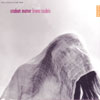Coulais Stabat Mater
A Stabat mater for our time inspired by an Algerian massacre image
View record and artist detailsRecord and Artist Details
Composer or Director: Bruno Coulais
Genre:
Vocal
Label: Astrée Naïve
Magazine Review Date: 7/2006
Media Format: CD or Download
Media Runtime: 68
Mastering:
Stereo
DDD
Catalogue Number: V5038

Tracks:
| Composition | Artist Credit |
|---|---|
| Stabat Mater |
Bruno Coulais, Composer
Aïcha Redouane, Speaker Bruno Coulais, Composer Christophe Guiot, Violin Claire Désert, Piano Elisabeth Pallas, Violin Françoise Gneri, Viola Guillaume Depardieu, Speaker Jean-Philippe Audin, Cello Laurent Korcia, Violin Loïc Pierre, Conductor Marc Chantereau, Percussion Marie Kobayashi, Mezzo soprano Mikrokosmos Chamber Choir Robert Wyatt, Speaker Slim Pezin, Guitar |
Author: aspicer
Bruno Coulais said in 2001 that he wanted to concentrate less on film music and pursue his contemporary classical career. A year later came the blockbuster soundtrack for the French art film Les choristes, which thrust him to major prominence as a film composer. His Stabat mater, premiered at the Festival de Saint-Denis in 2005, from which this recording is taken, is the composer keeping his earlier promise.
Rather than focusing on the suffering of Mary during Christ’s crucifixion, Coulais inserts a contemporary theme, citing a 1997 massacre in Algeria. The Stabat mater is inspired by a celebrated press photograph, known as the ‘Madonna of Bentalha’, which shows an Algerian mother weeping for her dead son.
There is a deliberate collision between the modern and the ancient, the contemporary voice and the traditional sitting uncomfortably together. Arabic chant, rock and minimalist repetition coexist in a series of vignettes. These impacts spark off moments of beauty, as in the ‘Dolente’ and ‘Fac ut portem Christi mortem’.
Coulais is most convincing in the Mikrokosmos Chamber Choir sections and using the gruff, ‘street’ voices of Robert Wyatt and Guillaume Depardieu. But elsewhere the structure fails and the music becomes an incoherent collection of loose ideas that sound like film-music excerpts. The recording is also very forward and somewhat harsh. Sections with electronically manipulated voices tend to recede out of the live recording and into the studio, giving the impression of a melange of concert and studio recording.
Ultimately this is a frustrating production. It hints at greater things to come, but only if Coulais does less to please a commercial audience and instead follows his more esoteric instincts.
Rather than focusing on the suffering of Mary during Christ’s crucifixion, Coulais inserts a contemporary theme, citing a 1997 massacre in Algeria. The Stabat mater is inspired by a celebrated press photograph, known as the ‘Madonna of Bentalha’, which shows an Algerian mother weeping for her dead son.
There is a deliberate collision between the modern and the ancient, the contemporary voice and the traditional sitting uncomfortably together. Arabic chant, rock and minimalist repetition coexist in a series of vignettes. These impacts spark off moments of beauty, as in the ‘Dolente’ and ‘Fac ut portem Christi mortem’.
Coulais is most convincing in the Mikrokosmos Chamber Choir sections and using the gruff, ‘street’ voices of Robert Wyatt and Guillaume Depardieu. But elsewhere the structure fails and the music becomes an incoherent collection of loose ideas that sound like film-music excerpts. The recording is also very forward and somewhat harsh. Sections with electronically manipulated voices tend to recede out of the live recording and into the studio, giving the impression of a melange of concert and studio recording.
Ultimately this is a frustrating production. It hints at greater things to come, but only if Coulais does less to please a commercial audience and instead follows his more esoteric instincts.
Discover the world's largest classical music catalogue with Presto Music.

Gramophone Digital Club
- Digital Edition
- Digital Archive
- Reviews Database
- Full website access
From £8.75 / month
Subscribe
Gramophone Full Club
- Print Edition
- Digital Edition
- Digital Archive
- Reviews Database
- Full website access
From £11.00 / month
Subscribe
If you are a library, university or other organisation that would be interested in an institutional subscription to Gramophone please click here for further information.




